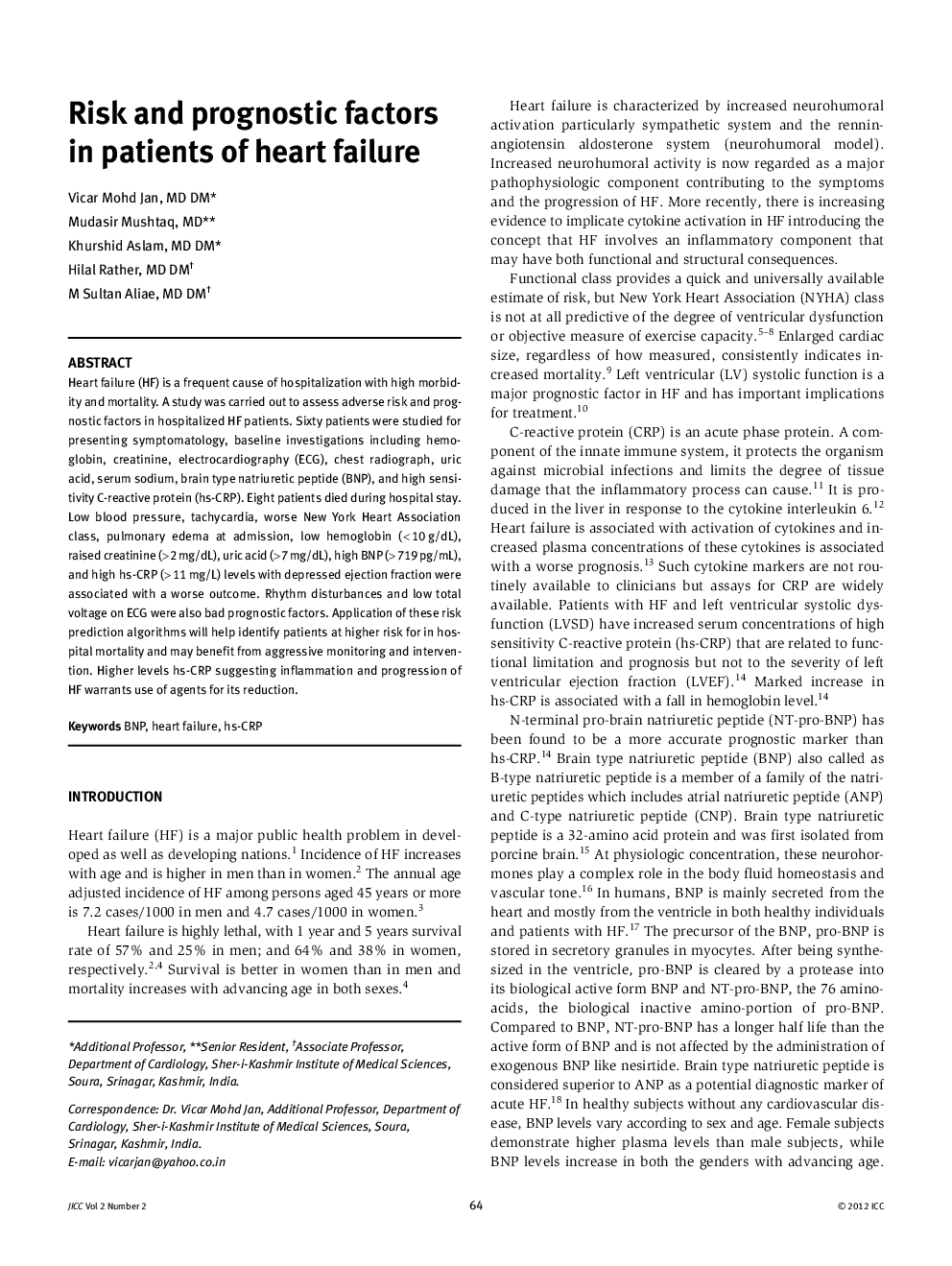| Article ID | Journal | Published Year | Pages | File Type |
|---|---|---|---|---|
| 2974042 | Journal of Indian College of Cardiology | 2012 | 11 Pages |
Heart failure (HF) is a frequent cause of hospitalization with high morbidity and mortality. A study was carried out to assess adverse risk and prognostic factors in hospitalized HF patients. Sixty patientswere studied for presenting symptomatology, baseline investigations including hemoglobin, creatinine, electrocardiography (ECG), chest radiograph, uric acid, serum sodium, brain type natriuretic peptide (BNP), and high sensitivity C-reactive protein (hs-CRP). Eight patients died during hospital stay. Low blood pressure, tachycardia, worse New York Heart Association class, pulmonary edema at admission, low hemoglobin (<10g/dL), raised creatinine (>2 mg/dL), uric acid (>7mg/dL), high BNP (>719 pg/mL), and high hs-CRP (>11 mg/L) levelswith depressed ejection fraction were associated with a worse outcome. Rhythm disturbances and low total voltage on ECG were also bad prognostic factors. Application ofthese risk prediction algorithms will help identity patients at higher risk for in hospital mortality and may benefit from aggressive monitoring and intervention. Higher levels hs-CRP suggesting inflammation and progression of HF warrants use of agents for its reduction.
